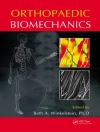Don’t miss it! The second, completely revised and expanded edition of the successful surgical manual on minimally invasive spine surgery includes 51 chapters (including more than 20 new chapters) covering all current minimally invasive techniques in spine surgery. A complete survey of all microsurgical and endoscopic techniques with a special focus on semi-invasive injection techniques for diagnostic and therapeutic purposes in low back pain is given. The clear chapter structure with terminology, history, surgical principles, advantages/disadvantages, indications, access principles, complications, and results facilitates navigation through the manual. Topics include the principles of microsurgical and endoscopic treatment, spinal navigation and computer-assisted surgery, minimally invasive reconstruction, fusion, dynamic stabilization in fractures, degenerative disc disease, spinal stenosis, low back pain and deformities. The didactic presentation of surgical steps makes the reader familiar with all types of new minimally invasive techniques in clinical use or still in ongoing clinical trials such as minimally invasive spine arthroplasty.
Innehållsförteckning
Minimally Invasive Spine Surgery.- Technological Advances of Surgical Microscopes for Spine Surgery.- Spinal Microsurgery.- Microsurgical Instruments.- Operating Room Setup and Handling of Surgical Microscopes.- Computer-assisted Minimally Invasive Spine Surgery.- Technique of Transoral Odontoidectomy.- Microsurgical Treatment of Odontoid Fractures.- Microsurgery of the Cervical Spine: The Anterior Approach.- Anterior Cervical Foraminotomy (Microsurgical and Endoscopic).- Functional Segmental Reconstruction with the Bryan Cervical Disc Prosthesis.- Microsurgical Total Cervical Disc Replacement.- Microsurgical Posterior Approaches to the Cervical Spine.- Microsurgical C1-2 Stabilization.- Microsurgical Anterior Approach to T5–10 (Mini-TTA).- Microsurgical Anterior Approach to the Thoracolumbar Junction.- Anatomic Principles of Thoracoscopic Spine Surgery.- Principles of Endoscopic Techniques to the Thoracic and Lumbar Spine.- Biomechanical Requirements in Minimally Invasive Spinal Fracture Treatment.- Thoracoscopic Approaches in Spinal Deformities and Trauma.- Thoracoscopic Techniques in Spinal Deformity.- Mini-open Endoscopic Excision of Hemivertebrae.- Thoracoscopically Assisted Anterior Approach to Thoracolumbar Fractures.- A Minimally Invasive Open Approach for Reconstruction of the Anterior Column of the Thoracic and Lumbar Spine.- Percutaneous Vertebroplasty in Osteoporotic Vertebral Fractures.- Microsurgical Open Vertebroplasty and Kyphoplasty.- Percutaneous Kyphoplasty in Traumatic Fractures.- Interventional and Semi-invasive Procedures for Low Back Pain and Disc Herniation.- Intradiscal Electrothermal Therapy.- Microtherapy in Low Back Pain.- Principles of Microsurgical Discectomy in Lumbar Disc Herniations.- The Microsurgical Interlaminar, Paramedian Approach.- The Translaminar Approach.- The Lateral, Extraforaminal Approach.- Transforaminal Endoscopic Discectomy.- Microscopically Assisted Percutaneous Technique as a Minimally Invasive Approach to the Posterior Spine.- Arthroscopic and Endoscopic Spine Surgery via a Posterolateral Approach.- The Full-endoscopic Interlaminar Approach for Lumbar Disc Herniations.- Outpatient Microsurgical Lumbar Discectomy and Microdecompression Laminoplasty.- Nucleus Reconstruction by Autologous Chondrocyte Transplantation.- Autologous Disc Chondrocyte Transplantation.- The ALPA Approach for Minimally Invasive Nucleus Pulposus Replacement.- Mini-open Midline Accesses for Lumbar Total Disc Replacement.- Microsurgical Decompression of Acquired (Degenerative) Central and Lateral Spinal Canal Stenosis.- Microsurgical Anterior Lumbar Interbody Fusion (Mini-ALIF): The Lateral Retroperitoneal Approach to L2/3, L3/4, and L4/5.- Microsurgical Anterior Lumbar Interbody Fusion (Mini-ALIF): The Transperitoneal Approach to L5/S1.- Minimally Invasive 360° Lumbar Fusion.- The Anterior Extraperitoneal Video-assisted Approach to the Lumbar Spine.- Minimally Invasive Dynamic Stabilization of the Lumbar Motion Segment with an Interspinous Implant.- Technical and Anatomical Considerations for the Placement of a Posterior Interspinous Stabilizer.- Elastic Microsurgical Stabilization with a Posterior Shock Absorber.












